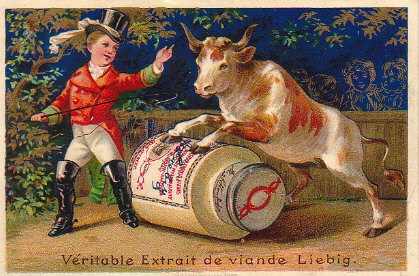Meat Consumption and Leistungskörper ('Capable Bodies') in Germany, ca. 1850 – 1930
Laura-Elena Keck, University of Leipzig
In the second half of the 19th century, German nutritional science – which soon took a leading role internationally – emerged and developed new nutritional norms. The consumption of meat was of central significance to discussions on the human metabolism: Around 1850 Justus von Liebig put forth his theory that animal protein provided the main source of muscular strength. This claim laid the foundations for a popular nutritional doctrine which propagated meat as being the most important source of energy – a discourse which lost little of its relevance in the subsequent decades. At the same time, criticism of the primacy of proteins was also growing – among nutritional scientists, who were increasingly shifting their interest toward the caloric value of food, and in the life-reform movement, whose representatives were favoring a vegetarian diet in most cases. These varying nutritional theories shared, however, the same principal goal of enhancing physical performance capacity, which became the main indicator of health and fitness.
This sub-project on the one hand seeks to explore these new areas of knowledge and conflict that emerged during the 19th century among nutritional scientists and their critics – in Germany, but also on a transatlantic scale. In this regard, the focus will be on deepening an understanding of the significance and meaning of meat consumption in contemporary discourses on nutrition, health and capability. On the other hand, the sub-project wishes to gain access to the perspective of individual actors by including the analysis of ego-documents. It will explore the significance of meat consumption (or a lack thereof) for day-to-day food habits, as well as asking which new practices of the body and techniques of subjectivation arose in this context.
Laura-Elena Keck works as a research assistant at the Institute for Cultural Studies of the University of Leipzig in the section for Comparative Cultural and Social History of Modern Europe (Prof. Dr. Maren Möhring).



